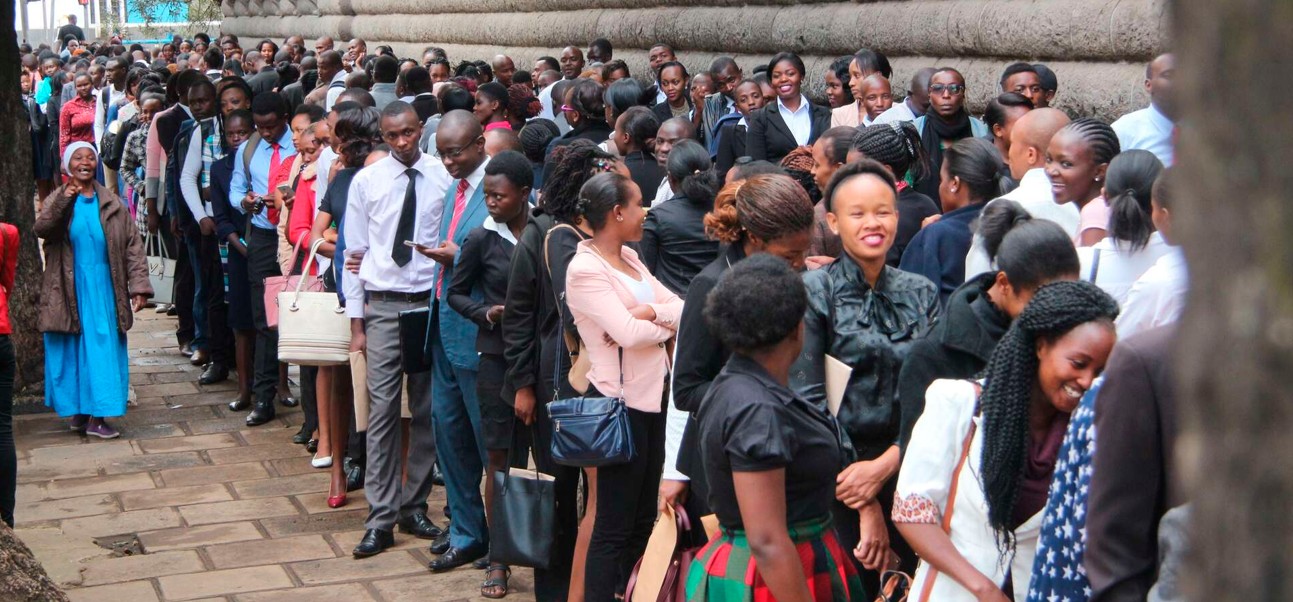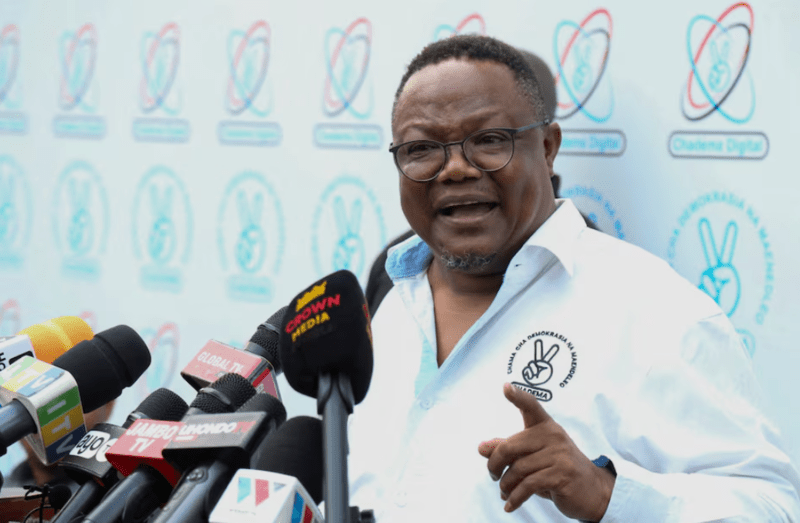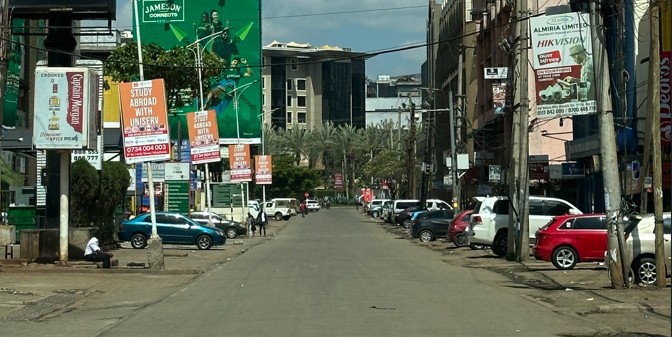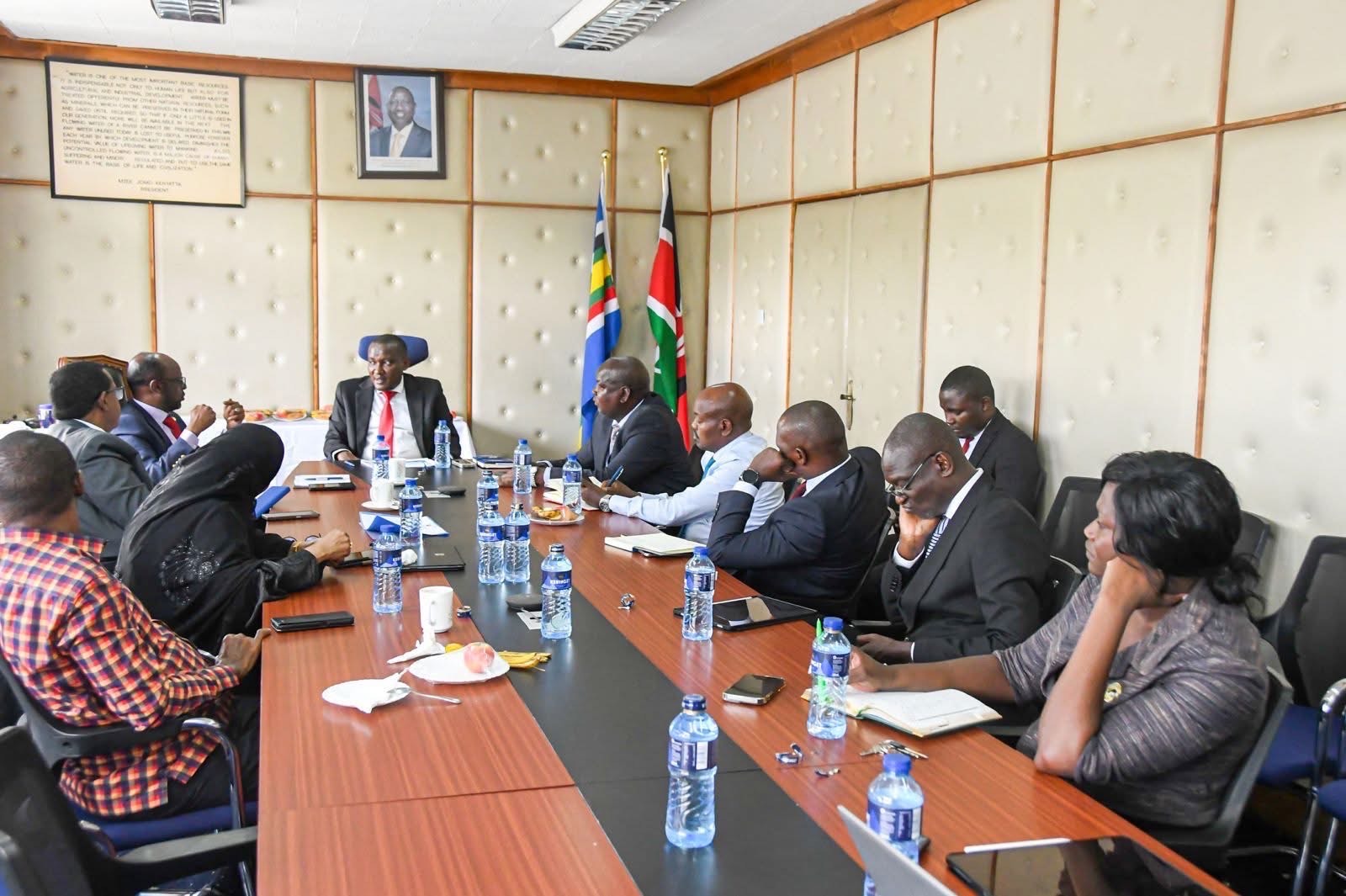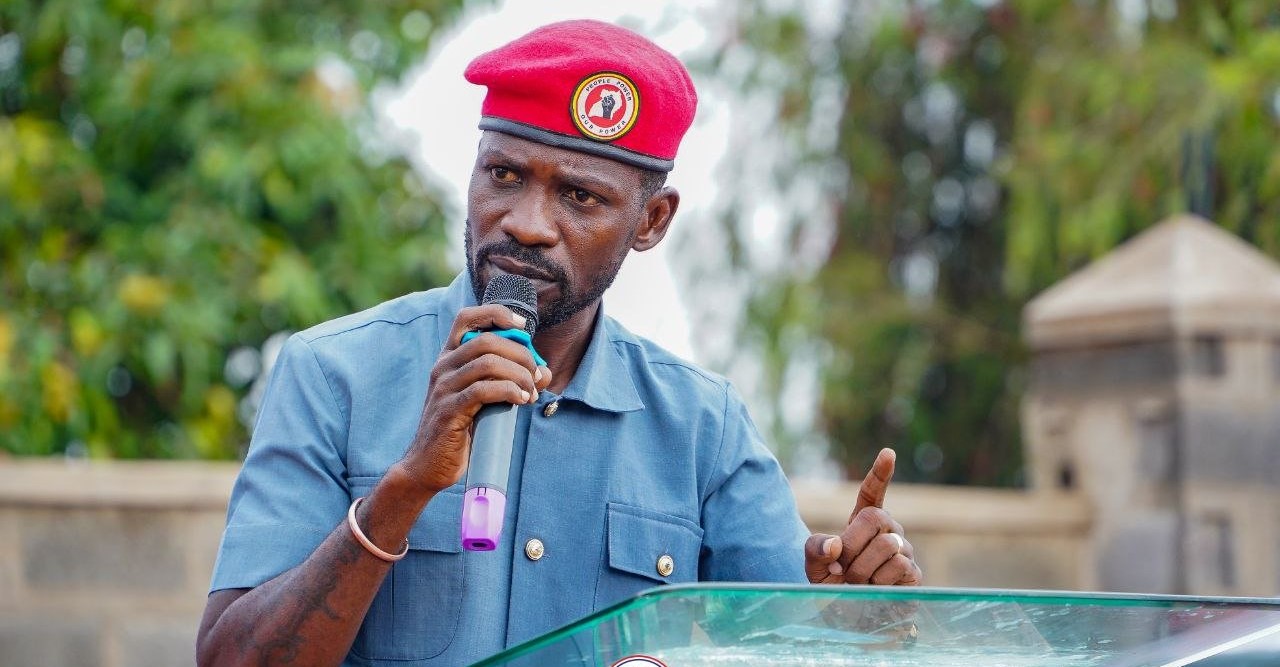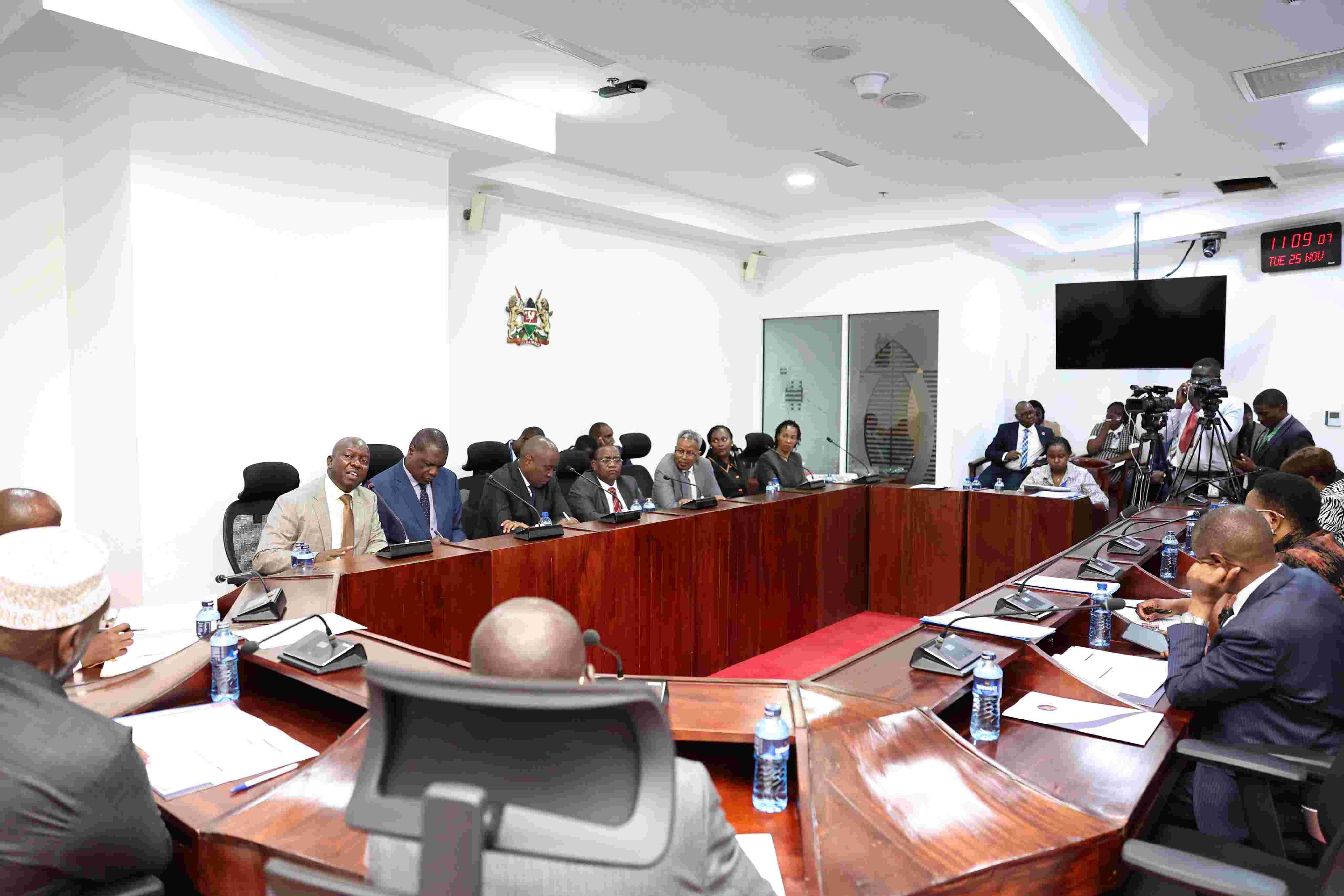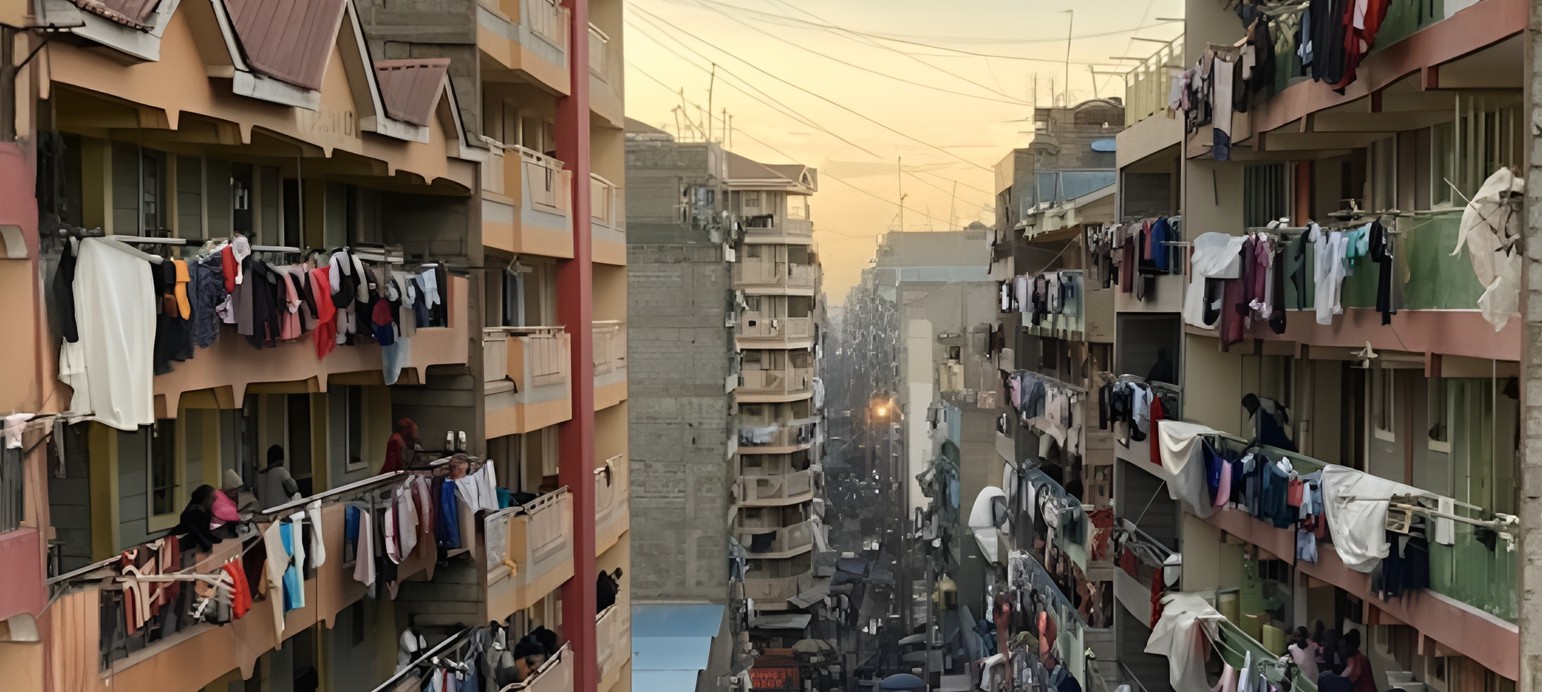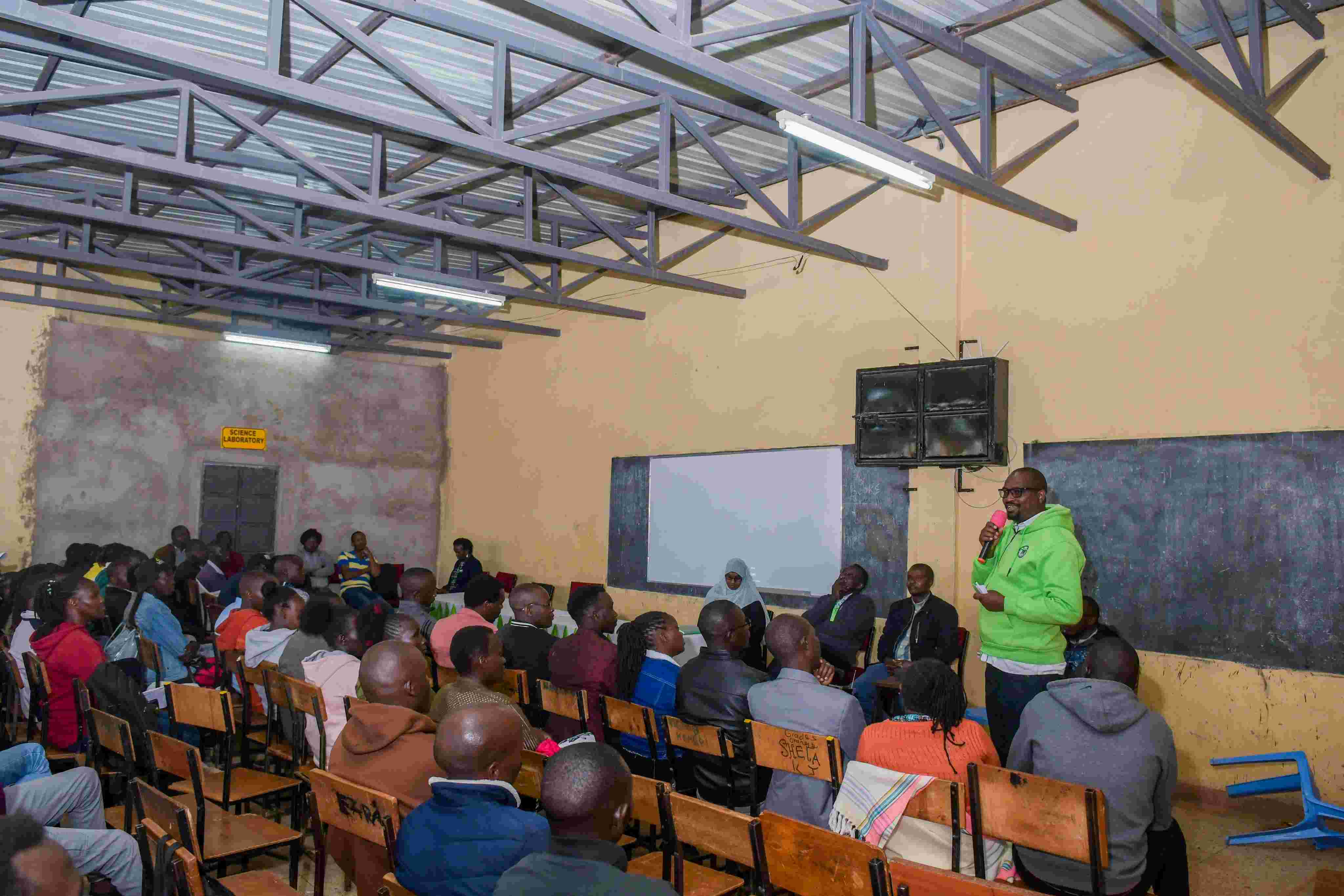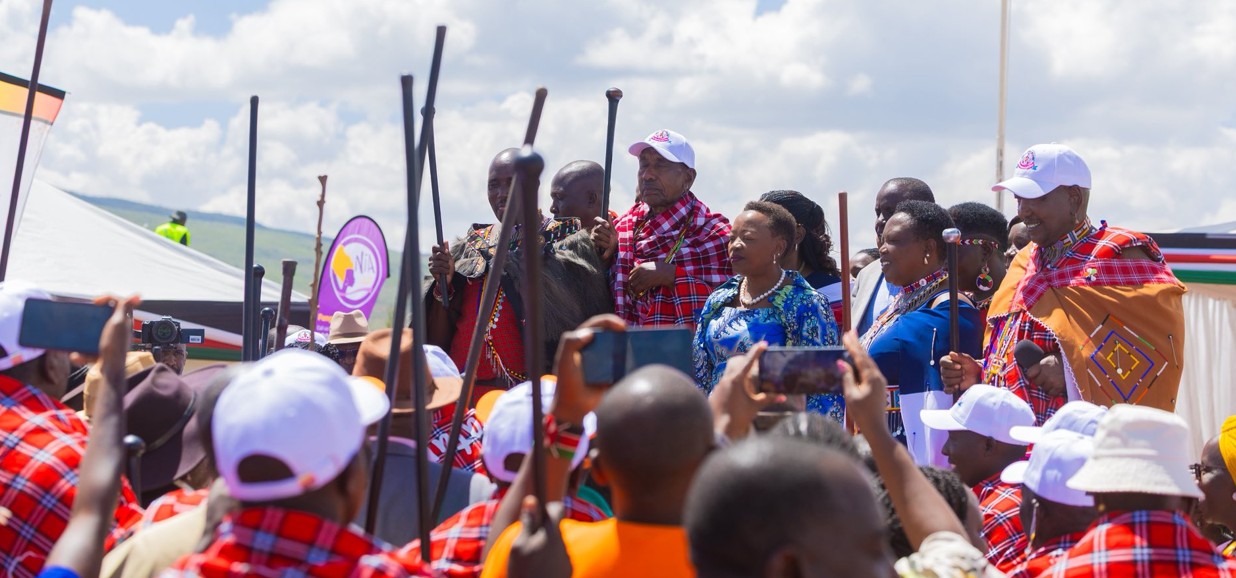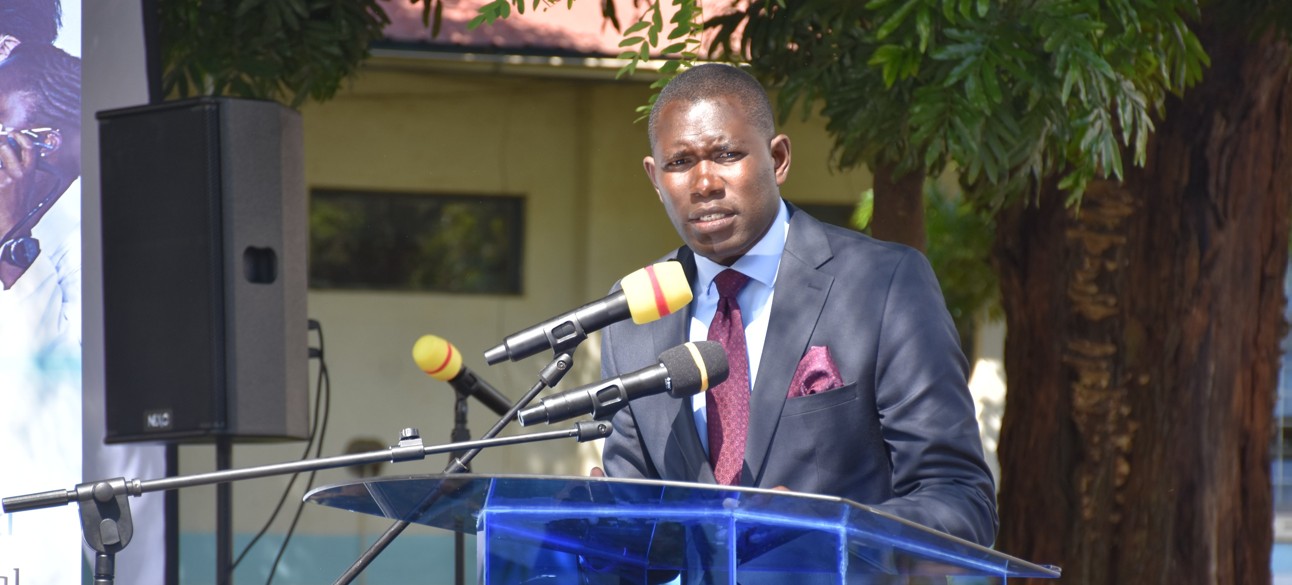How Mackenzie’s Shakahola victims suffered under ruthless militia-like gang
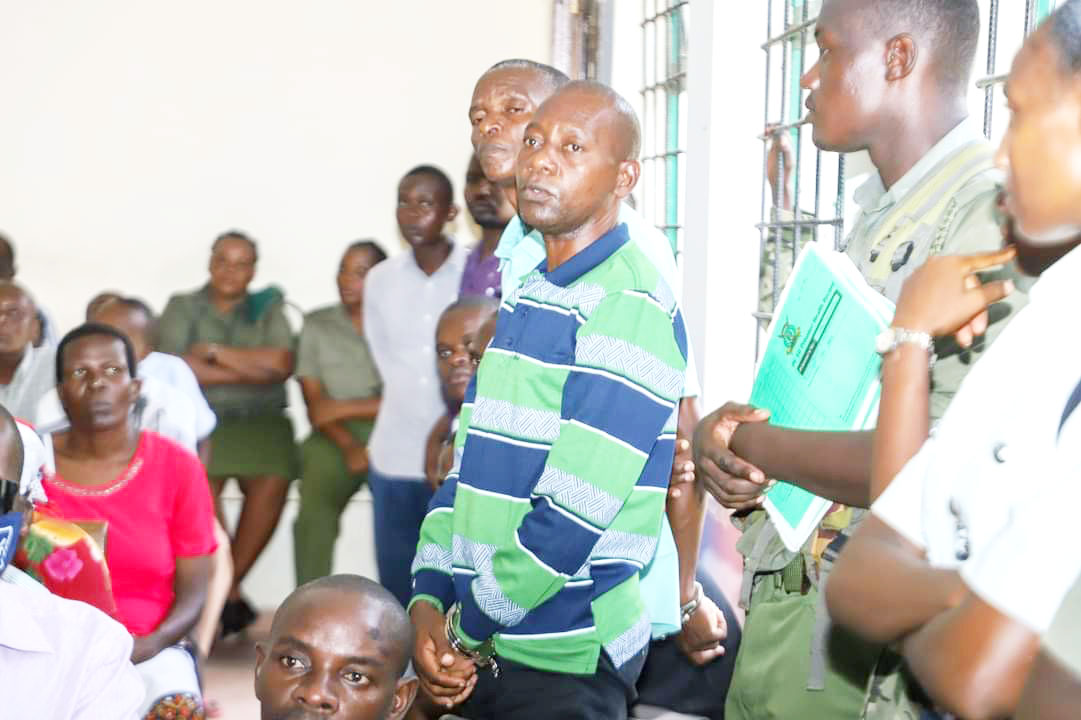
The court heard that the gang carried out systematic exterminations under an intricate governance system.
Dressed in a green striped shirt and black trousers, heavily guarded by police officers drawn from various commands and in handcuffs, Paul Nthenge Mackenzie was ushered into the Shanzu court on the morning of Monday, July 8.
He is a man described by state agencies as a scheming individual whose mission of luring thousands of his victims into the Shakahola forest was to maim and kill by subjecting them to hunger and slowly witnessing their deaths through starvation.
More To Read
- Shakahola massacre survivors struggle with trauma and anxiety, court told
- Families recount tragic loss of children in Shakahola starvation case
- Pastor’s daughter reveals how Mackenzie led followers to death in Shakahola Forest
- Pastor Mackenzie promised children wealth, helicopter if they followed his teachings - witness
- Court told Mackenzie secretly ate in custody as followers starved for eight days
- Ex-GSU officer’s death confirmed two years after Shakahola cult horror that destroyed entire family
Seemingly unperturbed, he stared at the team that was ready to present evidence of his atrocities inside the Shakahola forest. Looking emotionless, anyone looking at him would think the evidence being tabled had nothing to do with him.
That week, the trial of Mackenzie and 93 other suspects kicked off before Shanzu Principal Magistrate Leah Juma.
In their opening remarks, senior prosecution counsel Peter Kiprop and Yamina Jami, who represented the Director of Public Prosecutions (DPP) revealed that Mackenzie operated a “ruthless and efficient” well-organised criminal enterprise to massacre about 500 people in Shakahola forest.
They said the militia-like group was organised in the guise of a church under Mackenzie’s leadership.
The court heard that the gang carried out systematic massacres under an intricate governance system, complete with communication and transportation networks and security measures to enforce Mackenzie’s ruthless directives.
Juma further heard that Mackenzie and his deputy, Smart Deri Mwakalama, were the main protagonists in the horrendous murder and slaughter of mainly vulnerable women and children.
Witness accounts
The DPP’s team stated that the witnesses, some of whom are vulnerable and under protection, recounted how the accused firmly controlled the group's activities.
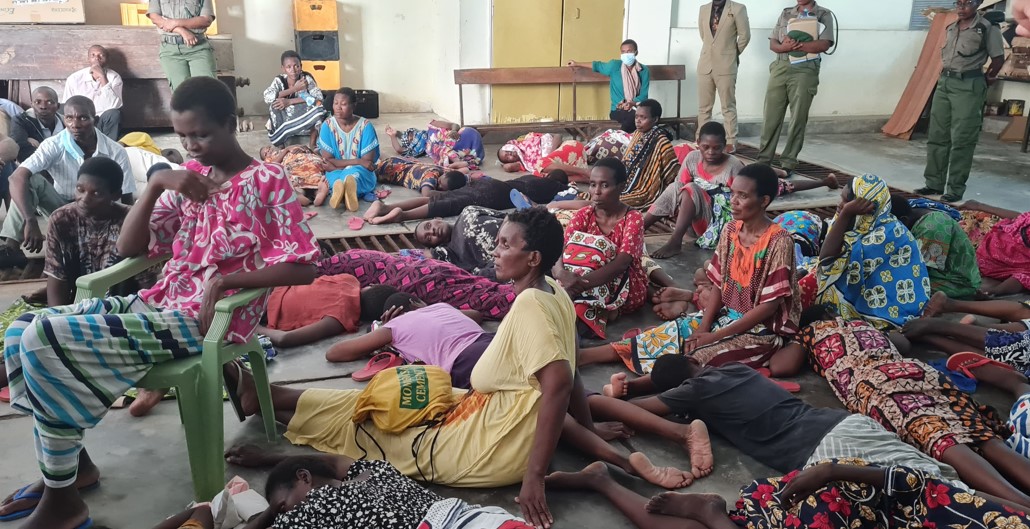 Some of the suspects in the Shakahola massacre of at least 429 people appear at the Mombasa Law Courts on February 20, 2024. (Photo: Farhiya Hussein)
Some of the suspects in the Shakahola massacre of at least 429 people appear at the Mombasa Law Courts on February 20, 2024. (Photo: Farhiya Hussein)
“Throughout the presentation of evidence to support the charges, witnesses will recount incidents that establish facts that are either explanatory, introductory, show a common intention or motive, or are caused by other facts, or demonstrate a pattern that may be the subject of a trial in the aforementioned courts,” said Jami.
As the state laid bare chilling details about the actions of Mackenzie and his co-accused, the Shakahola cult leader sat calmly, listening keenly to the accusations against him. He barely winked his eyes and he would often whisper to Mwakalama and in some instances smile before shaking his head, seemingly disagreeing with the accusations being levelled against him.
Even as the five witnesses lined up by the prosecution were unable to testify in court due to emotional breakdown, Mackenzie remained untouched, and in one of the sessions when one of the witnesses stepped down due to grief as he narrated how he lost six relatives, the main suspect seemed unbothered by the sombre mood that enveloped the courtroom for four days during the hearing of the case.
Mackenzie would mainly be seen chanting with his aides, probably enquiring t how they were fairing on inside the walls of Shimo La Tewa GK Prison where they are being held separately.
On Thursday of the same week, the fifth prosecution witness took to the stand.
The witness, an excavator driver who is under state protection due to the gravity of the case, informed Juma that he is a member of a yet-to-be-registered group, comprising about 40 people interested in purchasing land in Shakahola within Chakama ranch.
He said that in 2020, he began the process of buying land from the Wabwaya Mwara clan and, as such, he had visited the area on several occasions and engaged with members of the clan.
"The said land that we as a group were interested in borders Pastor Mackenzie's Shakahola forest land and, at the time of this particular visit, we arrived at the seller's homestead in Shakahola on that day at around 11 am," he said.
He informed the court that while inside the forest he heard a male voice shouting in Kiswahili: "Hakuna kutoroka, njooni hapa." ("There is no escaping, come back here.)
He said the male voice came from Mackenzie's farm.
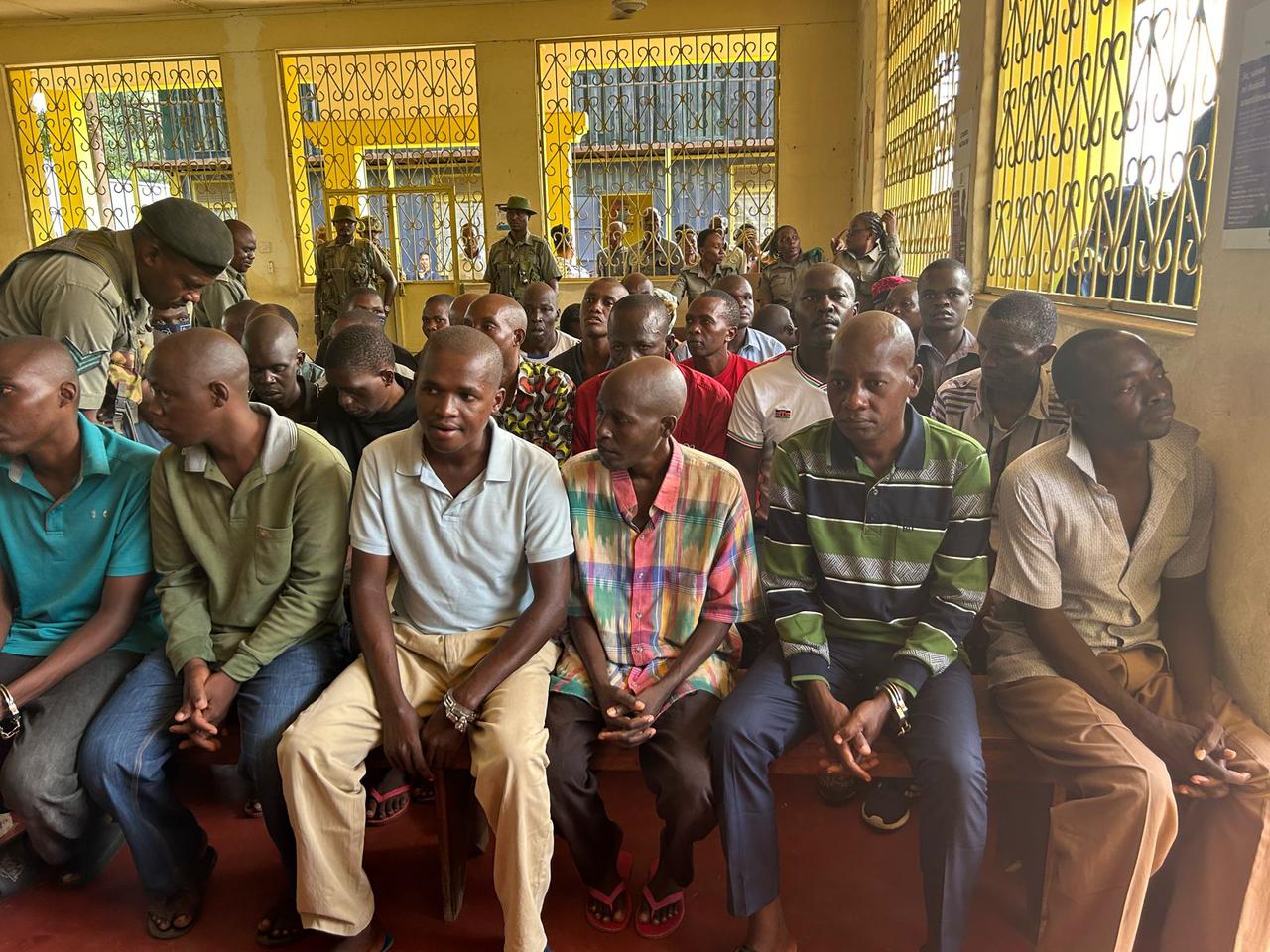 Self-proclaimed pastor Paul Mackenzie (2nd left) and other suspects in the Shakahola massacre at the Tononoka Children’s Court in Mombasa County on January 25, 2024. (Photo: Farhiya Hussein)
Self-proclaimed pastor Paul Mackenzie (2nd left) and other suspects in the Shakahola massacre at the Tononoka Children’s Court in Mombasa County on January 25, 2024. (Photo: Farhiya Hussein)
"At this stage, we realised that these were women who were being held captive against their will. We resolved to abandon our mission and find a way of helping the women and children who were stuck inside the forest," the witness told the court.
Armed man
He further said that before they could access the area, a man ordered the rest of the men to be ready with pangas “to defend the kingdom”. The men held crude weapons ready to attack any intruders.
The witness said after leaving the forest, he called the local chief and informed him of what he had seen.
"The area chief advised me to report the incident to the Directorate of Criminal Investigations offices in Malindi. I arrived in Malindi at 8 pm that night in the company of my three passengers but found the offices closed. However, I was referred to one Waringa of the Anti-Terror Police Unit who listened to my narration about how we had seen women crying for help in Shakahola forest," he said.
The witness told the court that the following morning, on April 13, 2023, Waringa called and asked him to go to the police station where he referred him to the officer-in-charge of the DCI in Malindi, a Mr Kamau, who asked him to accompany him and some of his officers to the area where he had witnessed the torture of the helpless women the previous day.
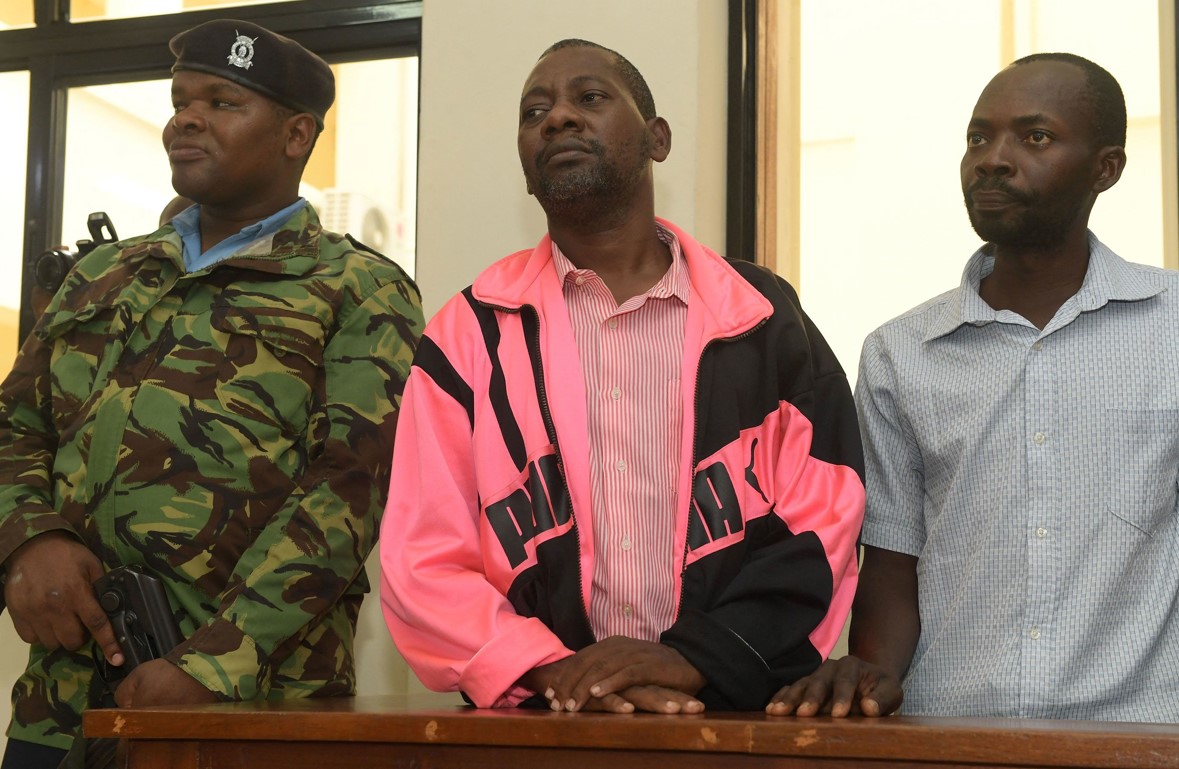 Shakahola massacre prime suspect Paul Mackenzie at the Mombasa Law courts on February 20, 2024. (Photo: ODPP)
Shakahola massacre prime suspect Paul Mackenzie at the Mombasa Law courts on February 20, 2024. (Photo: ODPP)
Inside the forest was an area that had been fenced off using twigs where the officers found four emaciated men lying on mats spread on the ground. The men were screaming, the witness said.
He further told the magistrate that some of the police officers and the public had by then joined in and helped carry the men to a police Land Cruiser. Three of the men died shortly after they were put in the vehicle.
"As we continued walking along the path, we found four men who appeared well-nourished, unlike the ones we had rescued. The men had already served a meal of rice and njahi on their plates ready to eat and three of them were arrested but one of them escaped," he said.
He also told the court that as they entered Mackenzie’s residence, the police officers discovered a thatched mud house whose door was secured from the outside using a binding wire. Voices pleading for help could be heard from inside the hut.
"Upon opening the door we found three frail, naked women whose legs were bound together with lesos. One of them died before she could be transported to the police vehicle while one was rushed to hospital in an ambulance," he told the court.
Top Stories Today
